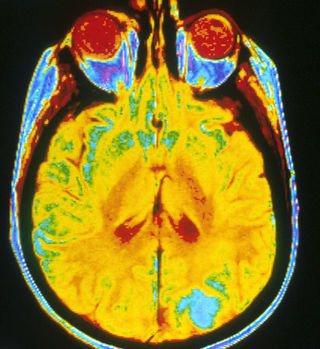Health
How Self-Affirmations Could Help Improve Hygiene
Taking stock of our most important values could help us to improve our hygiene.
Posted March 17, 2020

Wash your hands thoroughly. Sing some Rick Astley if you have to.
Stop touching your face, eyes, and mouth. (Seriously, you’re probably doing it right now.)
Reaffirm your most important personal values.
You probably won’t see that last piece of advice come from the WHO, but maybe you should. I’ve written before about how self-affirmation (a.k.a. values affirmation) can support underrepresented students in higher education. But given our current circumstances, I’ve been thinking a lot about how self-affirmation has also been shown to help people make healthier decisions. We should consider the potential of self-affirmation to mitigate the threat that can be caused by health information and to help us improve hygiene on a global scale.
Self-Affirmation Interventions Modify Behavior
One part of slowing the spread of coronavirus is getting people to change their hygiene behaviors. A telling study from 2012 demonstrated that self-affirmation could help people change their health behaviors outside of any other intervention. Among 45 female college students who expressed dissatisfaction with their weight, half engaged in a standard self-affirmation: They chose their most important value from a list (e.g., close relationships, music, compassion, intelligence) and wrote a brief essay about why it was important to them.
After two-and-a-half months, women who performed that one self-affirmation had lost, on average, 3.4 lbs.! Women in the control group, however, gained an average of 2.8 lbs. (a net difference of 6.2 lbs). Although the researchers did not measure what these women did health-wise in that two-and-a-half-month interim, it’s safe to assume that the self-affirmed women made some lifestyle changes that led to their weight loss.
Another way to influence behavior is to frame that change as pro-social. In the case of the coronavirus, better hygiene not only prevents you from getting sick but also keeps others out of danger. A 2019 study of nearly 300 UK residents leveraged self-affirmation to encourage a different kind of pro-social behavior: reducing household waste of fruits and vegetables. Individuals who typically threw away at least 4 percent of their weekly produce wasted significantly less if they did a self-affirmation before reading information about the consequences of food waste. Together, these studies suggest that self-affirmation may have an important role to play in changing hygiene behaviors during and after the current pandemic.
What Makes Self-Affirmation Work?
One mechanism underlying self-affirmation is that it makes threatening information more palatable. Signals that you should lose weight or throw away less food can make people feel shame, thereby diverting their attention to improving their mood rather than modifying their behavior. Moreover, taking advice places us in a passive, demotivated state, and health-related advice, in particular, is inherently unpleasant and often makes us defensive.
For example, being told to wash your hands in a new way implies you’ve been doing it wrong this whole time, and people don’t like being told they’ve been wrong. Furthermore, information that indirectly reminds us of death may be automatically suppressed to protect our sense of self. Reminders of your personal values, however, can be the antidote that prevents you from processing health information in a defensive and biased fashion.

We’ve even seen the effects of self-affirmation at the neurological level. In a 2015 study, normally sedentary adults read information about exercise while inside an fMRI machine, which measures changes in blood flow throughout the brain. These messages decreased participants’ sedentary behavior (as measured by wrist accelerometers) one month later.
Half of these adults, who also engaged in self-affirmation, however, showed greater fMRI activity in their ventromedial prefrontal cortex, a region associated with self-referential processing. Most importantly, the greater the activity in the VMPFC, the less sedentary behavior observed post-fMRI. Self-affirmation appeared to change how individuals’ brains processed information and made an already effective intervention even stronger.
Self-affirmation may also buffer oneself against stress, which in turn frees up the working memory resources needed for planned, deliberative behaviors. In the study of college students’ weight loss, women who engaged in self-affirmation performed better on a working memory task two-and-a-half months later: Among those women, those with better working memory scores lost more weight. In theory, self-affirmation prevented some invasive and negative thoughts about body image from occurring, which preserved working memory and made it easier to resist caloric temptations. The same process (self-affirmation ⇒ working memory ⇒ self-control) would be necessary for people to adopt new hygiene behaviors such as handwashing and non-face-touching.
Self-Affirmation in the Time of Coronavirus
Under anxious circumstances such as these, inundating people with information can be scary and overwhelming. We must strive to protect individuals’ self-concept so that the most important information gets through their defenses and produces necessary behavior change. A simple self-affirmation exercise, which could be delivered via email, website, or text message, could, therefore, be a scalable and cost-effective way to bolster public health information. For example, posters in bathroom stalls could list important values and ask people to think about which is most important to them. This “pre-intervention” might put people in the right frame of mind to receive the handwashing guidance taped over the sink.
Moreover, during such a stressful time, self-affirmation may protect our working memory from invasive and pernicious worries. Ample working memory will make it more likely that we remain conscious of not touching our faces or running out of the bathroom without washing, and only when we successfully engage in these new behaviors regularly might they become habitual. So when you have a few minutes, take a break, think about your most important values, and write down why those values make you who you are today.
References
Falk, E. B., O’Donnell, M. B., Cascio, C. N., Tinney, F., Kang, Y….Strecher, V. J. (2015). Self-affirmation alters the brain’s response to health messages and subsequent behavior change. PNAS, 112(7), 1977-1982.
Graham-Rowe, E., Jessop, D. C., & Sparks, P. (2019). Self-affirmation theory and pro-environmental behaviour: Promoting a reduction in household food waste. Journal of Environmental Psychology, 62, 124-132.
Logel, C., & Cohen, G. L. (2012). The role of the self in physical health: Testing the effect of a values-affirmation intervention on weight loss. Psychological Science, 23(1), 53-55.




